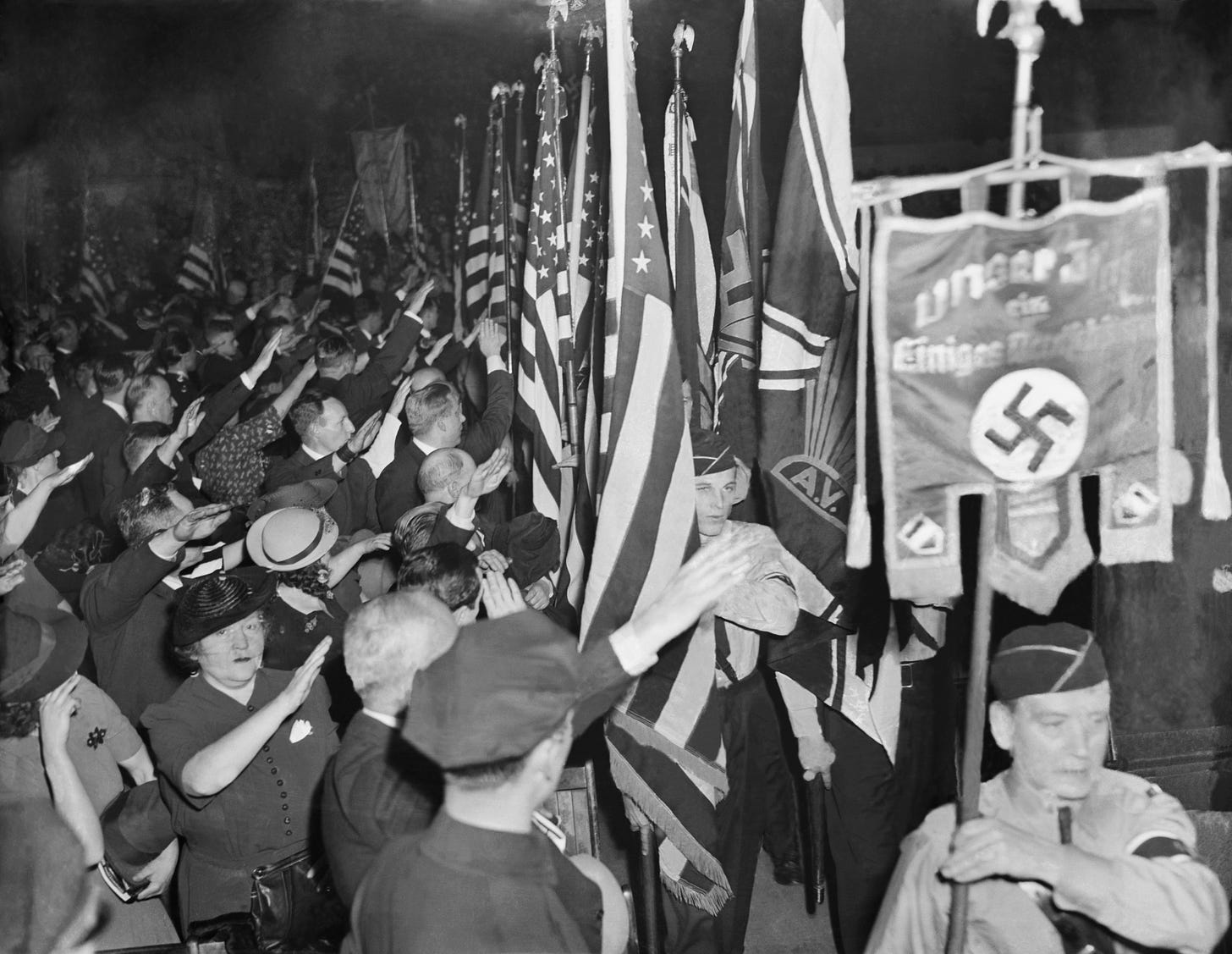
Fascist symbolism is ubiquitous in our culture—it’s a rare anti-vaxx protest that doesn’t display a swastika, usually as a way of criticizing supposedly authoritarian health measures, but also at times as a sincere expression of ideology. There’s been a long-running debate about whether contemporary right-wing authoritarians like Donald Trump can properly be described as fascist. Does the fascist metaphor cloud over more than it reveals?
In a recent column in Gawker, John Ganz wrote, “one part of the present age is the fracturing and fading of a shared sense of the meaning of the Holocaust and the Nazi era.” Prime examples of this tendency include the recent fracas over a Tennessee school board removing Art Spiegelman’s Maus from the curriculum and Whoopi Goldberg’s two-week suspension from The View after her ill-informed comments about the Nazi persecution of the Jews not being “about race.”
Amid the current confusion, John has been a voice of clarity. On his substack Unpopular Front, he’s done a series of posts on the parallels between various early 20th century fascist movements (particularly the failed fascists of Third Republic France) with 21st century counterparts. John’s writing on this topic is distinguished by its wide reading, creative synthesis of the scholarly literature, and its explanatory power. He’s also consistently engaged with people he’s disagreed with in a charitable and good faith manner. Given this, I was very eager to record a podcast to go over his thinking on these issues.
(Posted edited by Emily M. Keeler)
Share and Subscribe
If you liked this post, please share:
Or subscribe:














Share this post